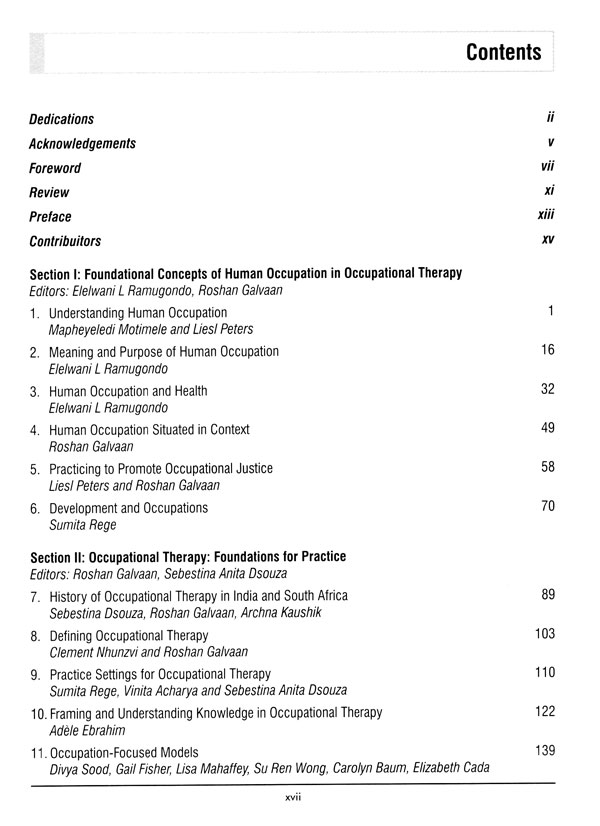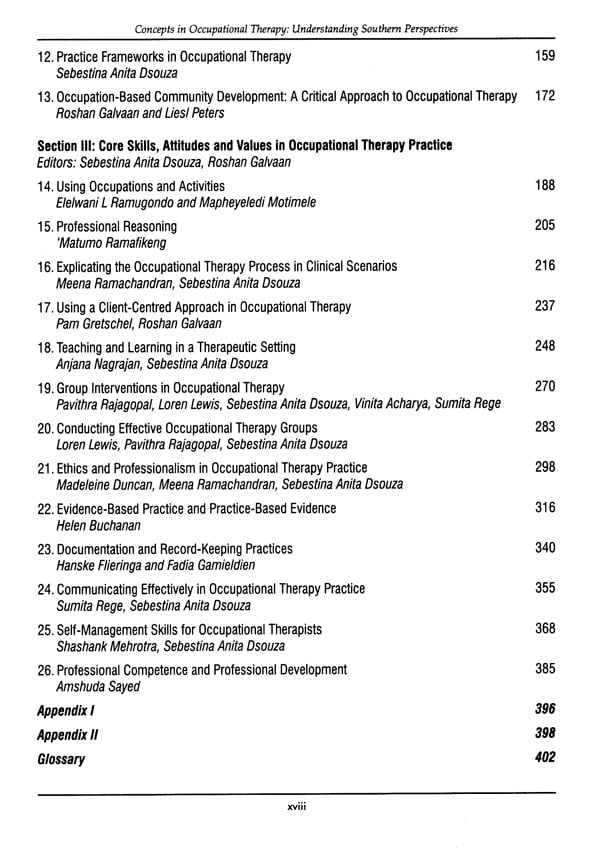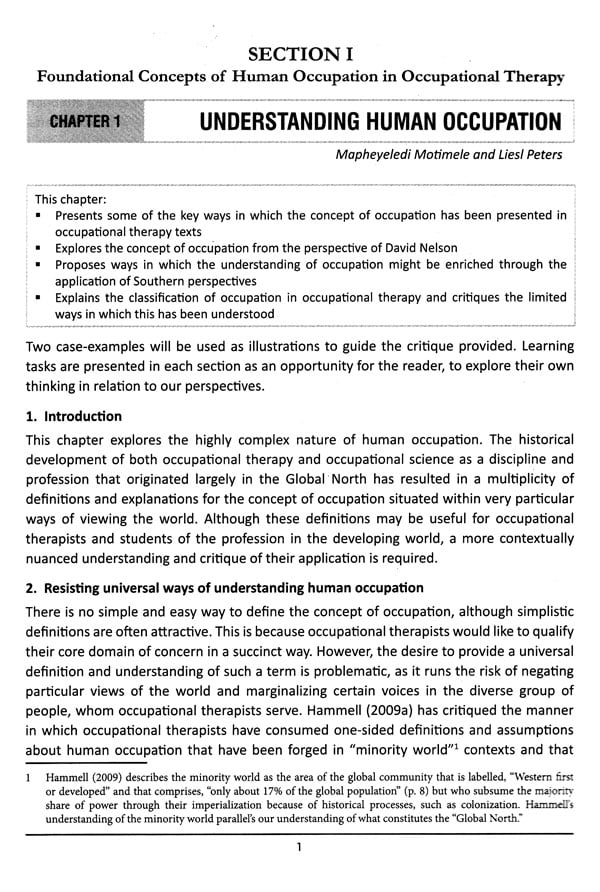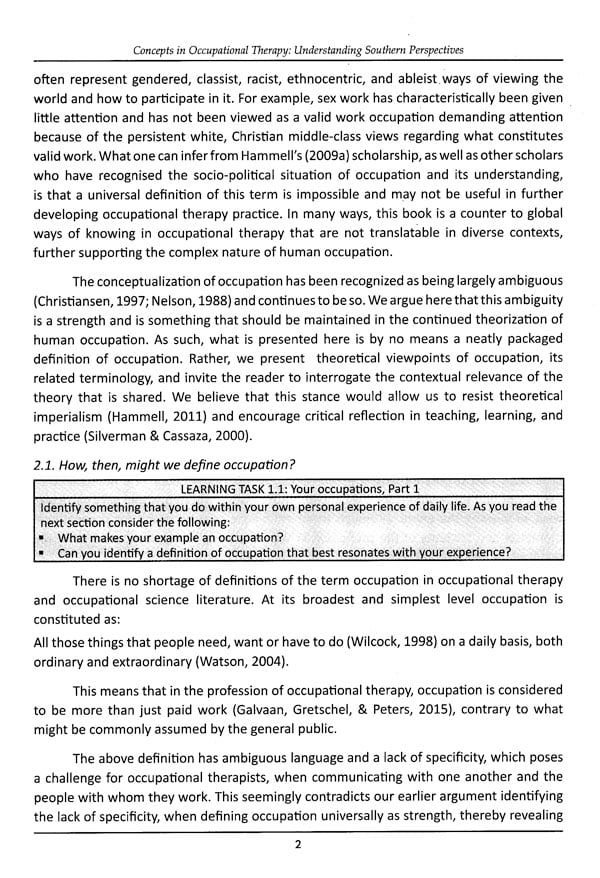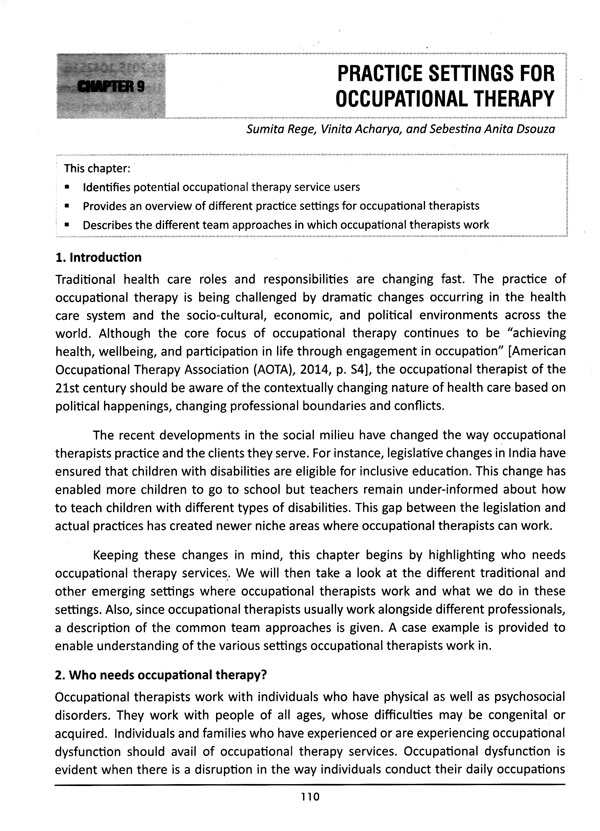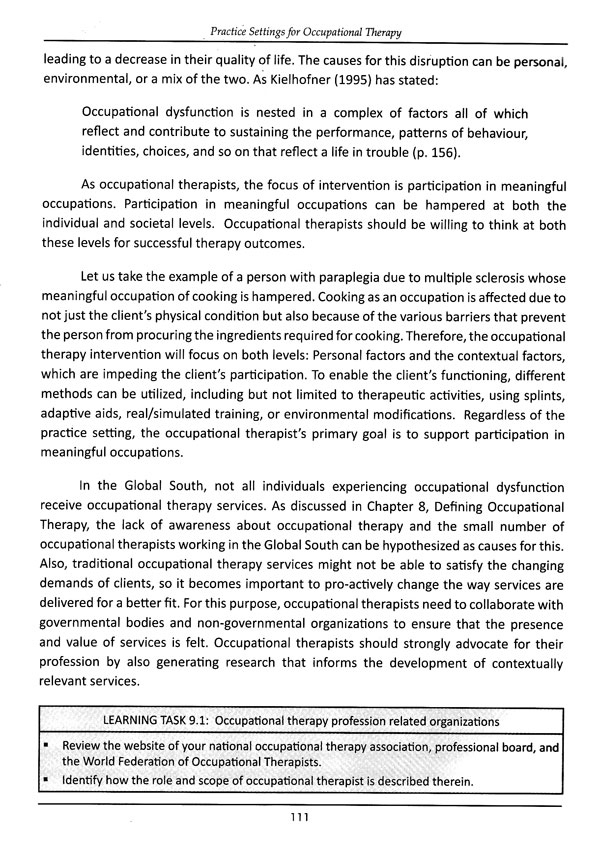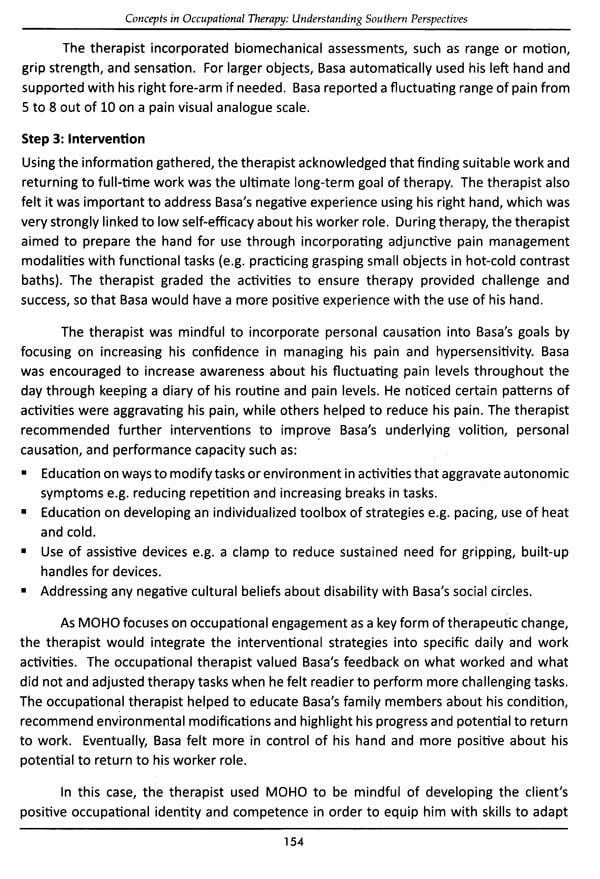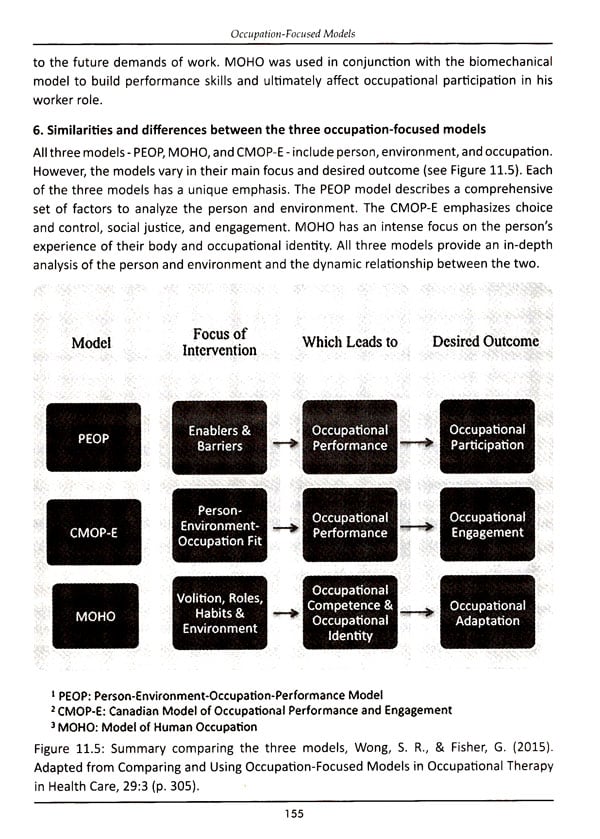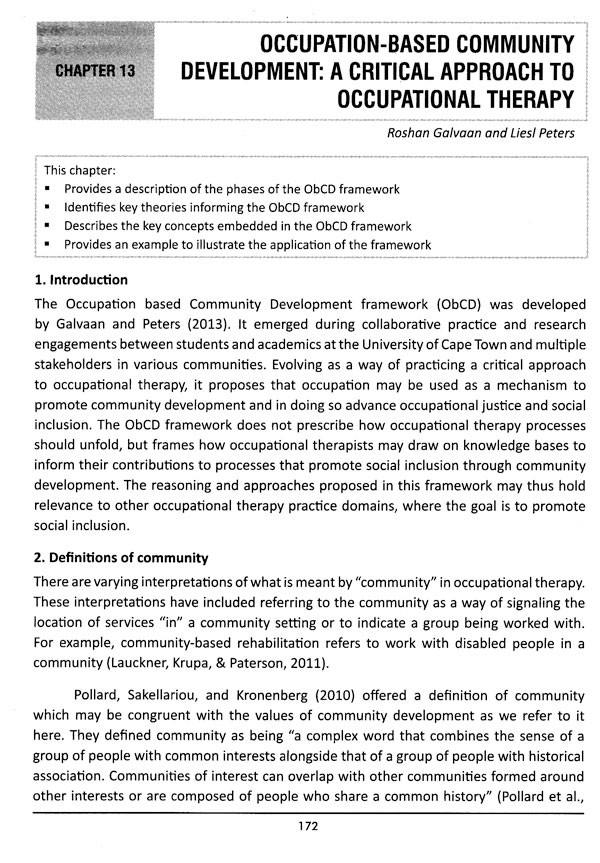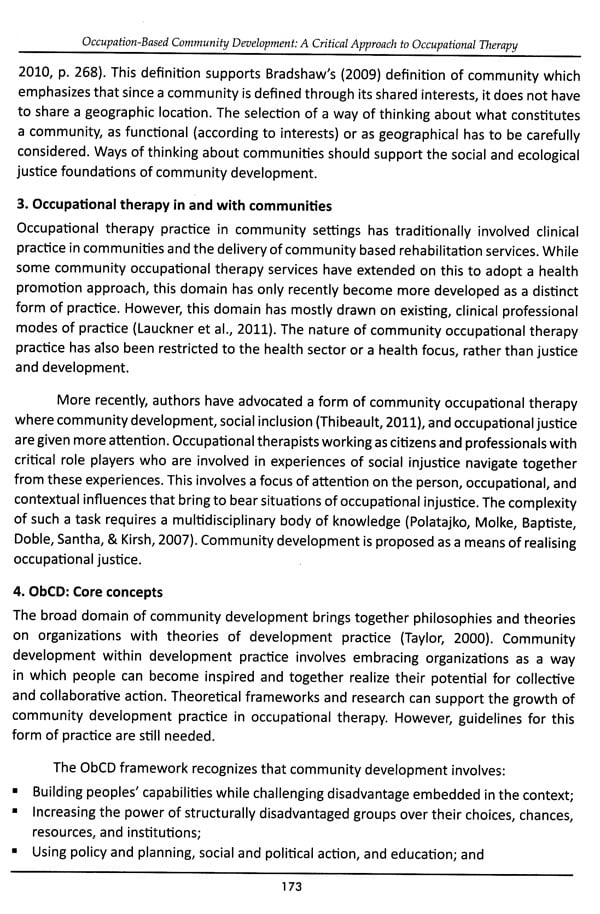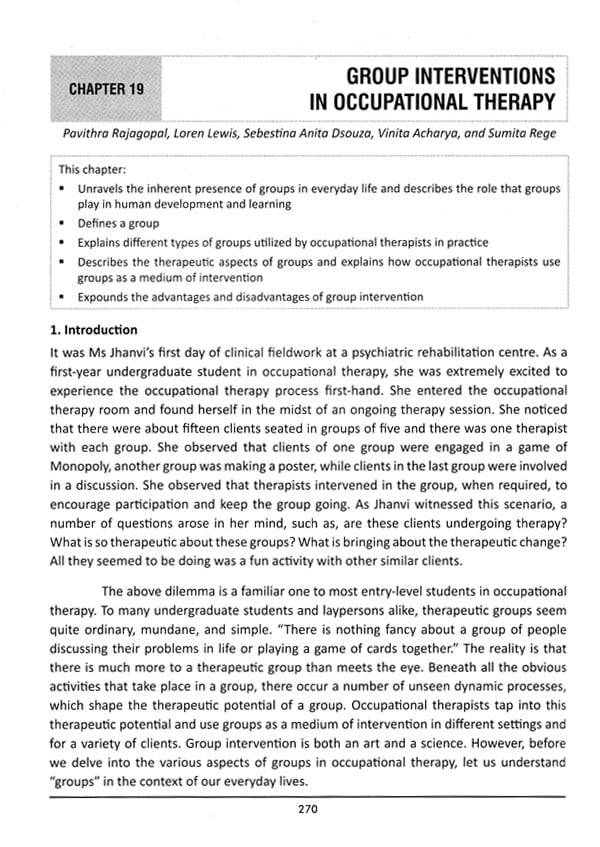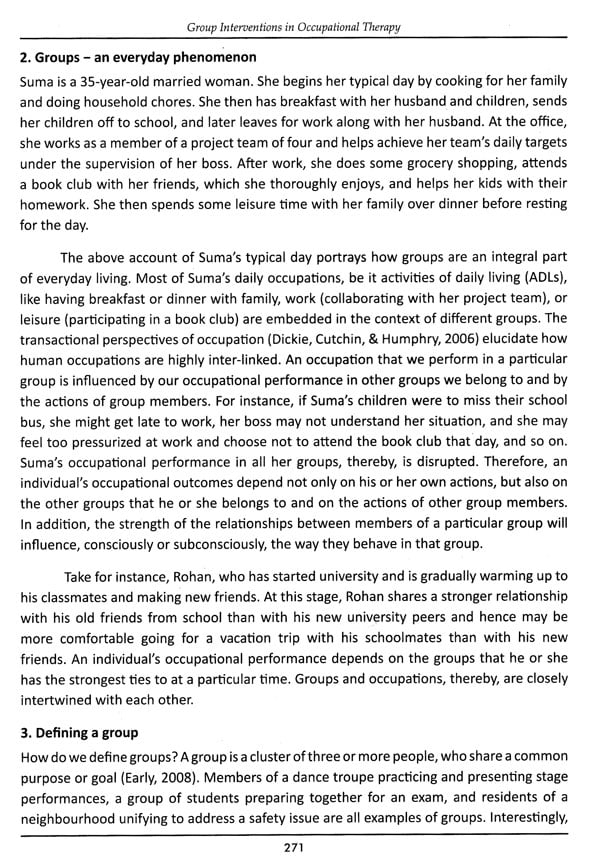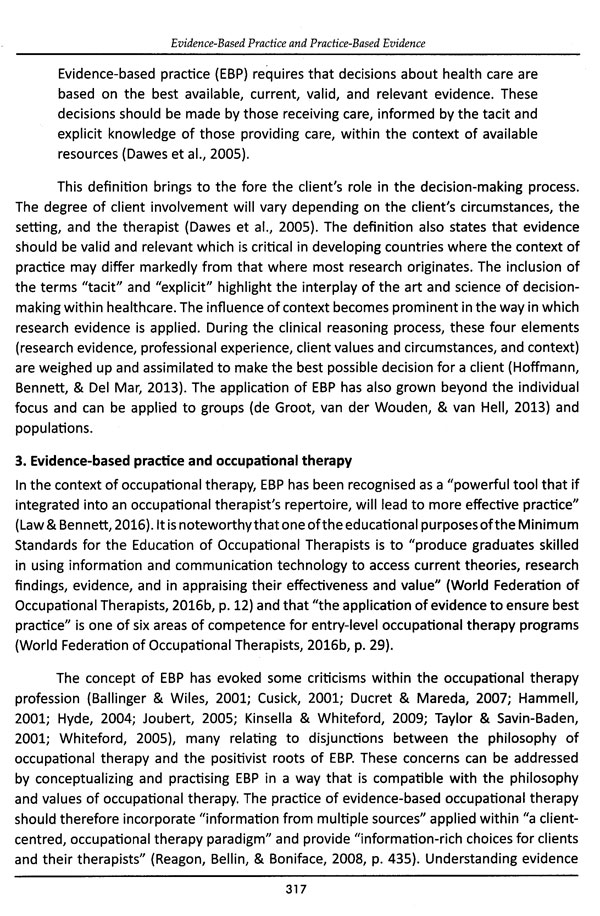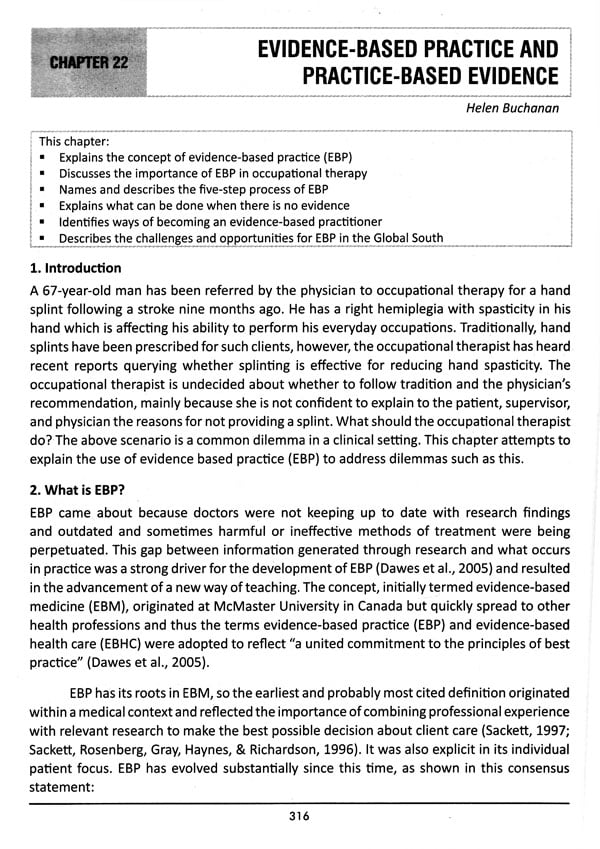
Concepts in Occupational Therapy (Understanding Southern Perspectives)
Book Specification
| Item Code: | NAZ744 |
| Author: | Sebestina Anita Dsouza, Roshan Galvaan and Elelwani L Ramugondo |
| Publisher: | Manipal University Press |
| Language: | English |
| Edition: | 2017 |
| ISBN: | 9789382460671 |
| Pages: | 424 (24 B/W Illustrations) |
| Cover: | PAPERBACK |
| Other Details | 9.15 X 7.00 inch |
| Weight | 850 gm |
Book Description
Concepts in Occupational Therapy: Understanding Southern Perspectives attempts to facilitate contextually relevant interpretation and application of core occupational science and occupational therapy concepts from the vantage point of academics in the Global South. With around 30 authors mostly from India and South Africa, the book offers diverse insights into the socioeconomic, cultural and political factors influencing occupational therapy practice in the southern region. It describes the profession's development in India and South Africa. It elucidates the core skills, values and attitudes essential for practice, and more importantly, discusses the challenges to and opportunities for the profession in the Global South. It provides an integrated view of occupational therapy and is an essential tool for occupational therapists, educators, students, researchers and occupational scientists.
Sebestina Anita Dsouza is a Professor at Manipal University. Besides her expertise in stroke rehabilitation, elder care and community practice, she is actively involved in pedagogy initiatives to enhance learning for contextually relevant practice.
Roshan Galvaan is an Associate Professor at the University of Cape Town. Her scholarship exploring the context of human occupation has contributed towards re-conceptualizing occupational choice. She has contributed to integrating occupational science into occupational therapy in novel ways.
Elelwani L Ramugondo is an Associate Professor at the University of Cape Town. Her scholarship on intergenerational play has led to the conceptualization of occupational consciousness, which is informed by liberation philosophy.
Dream, Dream, Dream Dreams transform into thoughts and thoughts result in action .. . Abdul Kalam Occupational therapy in the Global South is a relatively young profession, with scholarship that has evolved through processes of deconstructing traditional knowledge in the discipline and reconstructing ways of knowing and doing that are more reflective of context. To date, texts such as Occupational Therapies Without Borders (Sakellariou and Pollard, 2017) and Transformation Through Occupation (Watson & Swartz, 2004) have illustrated the possibilities for new knowledge to emerge from the Global South, providing platforms for showcasing examples of contextually situated practice. Emerging from places where the ongoing influence of colonialism pervades, this book offers a perspective on occupational therapy as situated in its historical, political and social contexts.
The idea to initiate a collaborative publication started with conversations among the editors, reflecting on the challenges and opportunities to theorizing, practicing and teaching occupational therapy in our respective countries. In response, this text provides a philosophical and conceptual foundation of occupational therapy from the vantage point of academics in the Global South. It explains different concepts, informing and influencing approaches to practice, highlighting ways of knowing that are contextually informed and striving for contextual relevance.
This book is an effort towards broadening perspectives beyond the traditional conceptualization and practice of occupational therapy and is thus titled, Concepts in Occupational Therapy: Understanding Southern Perspectives. The primary purpose of the book is to provide occupational therapy students, educators and practitioners with foundational concepts in human occupation and occupational therapy. The use of accessible language and contextually relevant case studies are key features of the book.
The unexamined profession is not worth practicing . . . With Apologies to Socrates More than 2500 years ago Greek philosopher Socrates declared, "The unexamined life is not worth living." In these increasingly complex times, where the movement of knowledge and technologies across cultural boundaries is both commonplace and rapid, unexamined lives seem less troubling than unexamined truths. How could we have imagined that knowledge, and the beliefs and assumptions upon which it rests, might equally apply in contexts unimagined by its authors? Yet it is just that folly that informed the transplantation of occupational therapy concepts, theories, assessments and interventions from the US and UK to diverse countries across the globe.
To give the pioneering occupational therapists of the early 20th century their due, the idea that occupation has health enhancing properties has a centuries-long heritage (Wilcock, 2002). Moreover, the Arts and Crafts Movement had amplified that idea, in the belief that reviving traditional crafts would cure the social ills and human degradation born of the industrial revolution (Hocking, 2004). Their creed, that crafting quality products by hand was ennobling, that it could heal the body, mind and soul, became the lynch pin for occupational therapy. Thus, Mary Reilly's (1962) much cited pronouncement that "man through the use of his hands as they are energized by mind and will, can influence the state of his own health" (p. 2) has clear roots in William Morris's earlier text, Useful Work versus Useless Toil:
. . . a man at work, making something which he feels will exist because he is working at it and wills it, is exercising the energies of his mind and soul as well as his body. Memory and imagination help him as he works. Not only his own thoughts, but the thoughts of the men of past ages guide his hands; and, as a part of the human race, he creates (1885/1915, p. 100).
Persuaded by such powerful ideas and the scientific knowledge being generated by biomedicine researchers, anatomists, psychologists, sociologists and expert practitioners, how could occupational therapists have questioned the wisdom of engaging patients' hands and minds in occupation? After all, they saw the evidence with their own eyes; patients crippled by ill health, wartime injuries, developmental disabilities, and insanity were restored as functioning human beings.
Book’s Content and Sample Pages